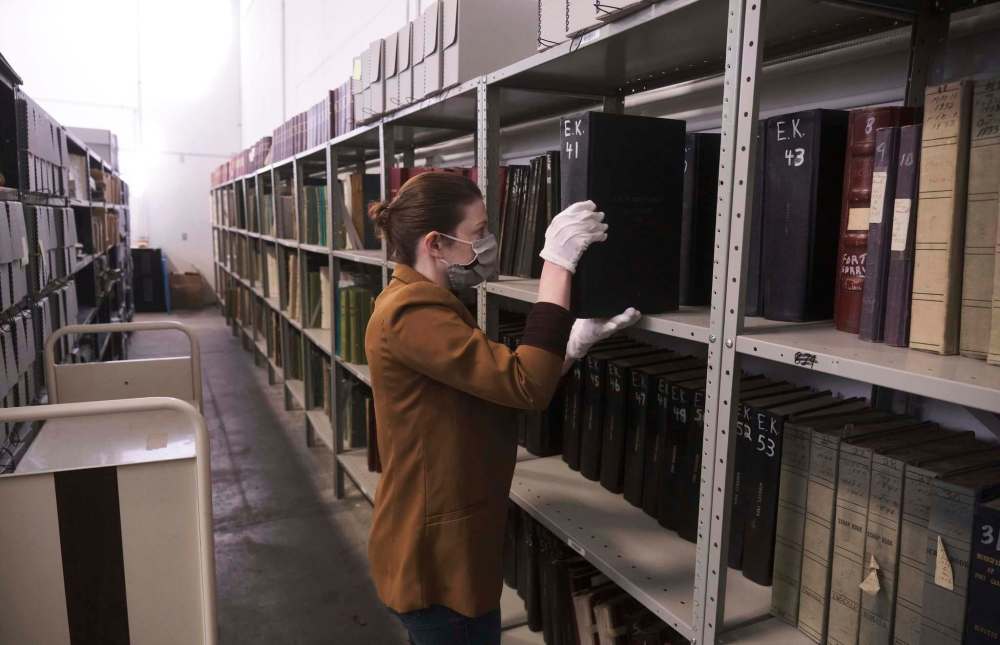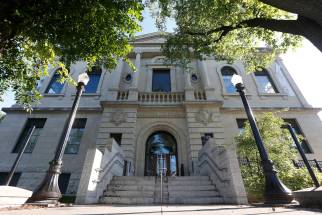Give Winnipeg’s history a fit home
Read this article for free:
or
Already have an account? Log in here »
To continue reading, please subscribe:
Monthly Digital Subscription
$0 for the first 4 weeks*
- Enjoy unlimited reading on winnipegfreepress.com
- Read the E-Edition, our digital replica newspaper
- Access News Break, our award-winning app
- Play interactive puzzles
*No charge for 4 weeks then price increases to the regular rate of $19.00 plus GST every four weeks. Offer available to new and qualified returning subscribers only. Cancel any time.
Monthly Digital Subscription
$4.75/week*
- Enjoy unlimited reading on winnipegfreepress.com
- Read the E-Edition, our digital replica newspaper
- Access News Break, our award-winning app
- Play interactive puzzles
*Billed as $19 plus GST every four weeks. Cancel any time.
To continue reading, please subscribe:
Add Free Press access to your Brandon Sun subscription for only an additional
$1 for the first 4 weeks*
*Your next subscription payment will increase by $1.00 and you will be charged $16.99 plus GST for four weeks. After four weeks, your payment will increase to $23.99 plus GST every four weeks.
Read unlimited articles for free today:
or
Already have an account? Log in here »
Hey there, time traveller!
This article was published 09/11/2021 (1495 days ago), so information in it may no longer be current.
As Winnipeg prepares to celebrate its historic 150th birthday in 2023, here’s a gift suggestion: a decent home for the city archives.
The treasury of the city’s historical documents and photographs has been consigned to a humiliating exile since its previous home in the Carnegie Library was damaged by a powerful rainstorm in 2013. Since then, the city’s irreplaceable archives have been shunted to a nondescript warehouse in the city’s Pacific Industrial Park, where inadequate temperature and humidity controls could hasten the disintegration of fragile items, and where public visits are discouraged by the remote location.
History repeats itself: city archives could head back to Carnegie Library

Posted:
Irreplaceable photos and documents from Winnipeg’s past could finally get a permanent home.
A city committee now has the opportunity to rectify Winnipeg’s embarrassing negligence of its own historical records. Council’s property and development committee will vote today on a proposal to return the archives to the Carnegie Library, a $12.7-million plan that would require suitable renovation of the library. A positive vote by the committee would advance the proposal to the city’s 2023 budget process, with final approval required by a council vote on the budget.
The proposal is apt, both in timing and location. To time the rescue of the archives as a celebration of Winnipeg’s sesquicentennial would indicate an appropriate respect for this city’s past. And to renovate the Carnegie Library building at 380 William Ave. would let the archives return to a place that is fitting in terms both of easy public access and a venue that is appropriate for its function, given that the venerable Carnegie structure is itself a heritage building. Built in 1903, the Carnegie Library is currently vacant and in 2018 was added to the National Trust Endangered Places List.
The historic site is an ideal home for the archives, which contain a deep repository of how our Winnipeg ancestors built the city we’ve inherited. It includes council minutes, building plans and tax rolls as far back as the 1870s, not just for the city now known as Winnipeg, but for Transcona, St. Boniface and other communities that had their own governance before the Unicity amalgamation in 1972.
The city records include detailed descriptions of how a 19th-century isolated settlement on the Canadians Prairies became one of Canada’s most important cities in the 20th century. Invaluable information about past floods is relied upon by flood forecasters and flood fighters who need to know how to bolster defences when the city’s rivers and creeks begins to rise.
There are also countless photo collections that chronicle the social lives of generations of Winnipeggers. For example, the parks and recreation collection has more than 7,000 photographs from events in parks, golf courses and community centres.
The documents and photographs in the archives are the memories of who Winnipeggers are, where we have been and what we have accomplished. When those memories are allowed to crumble, so does our identity.
What did Winnipeg look like when it first became a city in 1873? It’s in the archives. How about reliable records and photographs from the Winnipeg General Strike in 1919 or the jubilation from Blue Bombers’ fans during Grey Cup parades? It’s all in the archives.
Some people might wince at the proposed $12.7-million price tag to upgrade the Carnegie Library to the standard required of archives, coming as the city struggles with rising costs that might seem more immediate, such as emergency services, infrastructure and unexpected bills related to COVID-19.
But councillors also shoulder the responsibility of preserving the long-term identity of the city they serve. The documents and photographs in the archives are the memories of who Winnipeggers are, where we have been and what we have accomplished. When those memories are allowed to crumble, so does our identity.
Councillors have the chance today to rescue the archives from its shamefully inadequate quarters and give Winnipeg’s 150-year history the respect it warrants. The city’s history is in their hands, and those hands should give a thumbs-up.








